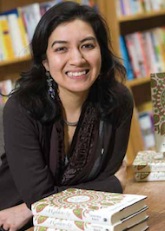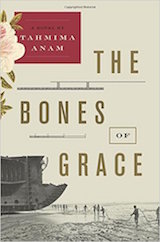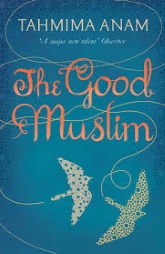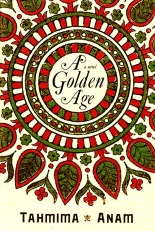Tahmima Anam
|
|
Tahmima Anam is the author of the Bengal Trilogy, which chronicles three generations of the Haque family from the Bangladesh war of independence to the present day.Trained at Harvard as a professional anthropologist, Tahmima Anam’s historical novels about Bangladesh are works of intensive research and inspired ventriloquism. Her debut novel, A Golden Age, was awarded the Commonwealth Writers’ Prize for Best First Book. It was followed in 2011 by The Good Muslim. ‘Anwar Gets Everything’, published in 2013 by Granta magazine 123 is an excerpt from the final instalment of the trilogy, Shipbreaker, published in 2014 by Canongate in the UK and HarperCollins in the US. She lives in Hackney, east London, with her husband, the musician and inventor Roland Lamb. Born in 1975 into the Bangladesh cultural elite and educated internationally, Anam is too young to have experienced her homeland’s drive for independence and war with Pakistan in 1971. Her chosen mission in her two acclaimed novels to date has therefore been to present the story of her parents’ generation for a new audience. The research for both her books comes partly from interviews she conducted with family members and Bangladeshis who experienced the conflict. “I did lots of research for my first book which carried over to the second”, Anam has stated, “I prefer to ask people who were there about their experiences; I don’t like to use books, unless they’re memoirs or testimonials. I ask people the little details, about what they wore, what brand of cigarettes they smoked, what music they listened to, maybe the car they drove. And then I try and forget the research, so the reader doesn’t ever feel like I’ve just given a history lesson. I want the research to be in there, to be accurate, but not felt in a palpable way. I think the only time you notice research is when the illusion of the past gets broken, and I’m trying to avoid that.” (Bookslut, July 2011) The first fruits of this method was her debut A Golden Age (2007), which opens in 1959 with the words of a widow to her dead husband: “I lost our children today.” Rehana Haque, a young woman from an aristocratic but impoverished Calcutta family, has entered into an arranged marriage with a businessman in Dhaka, only to see him die of a heart attack. With no money to fight her husband’s rich brother, she temporarily loses custody of her two children, who are taken far away to Lahore, in the west. After a mysterious bit of luck with an investment in real estate, Rehana is able to bring them back, but has been marked by the loss. Although she builds an ordered life, her own dreams are sacrificed. When the civil war begins, the true scale of the events that are unfolding take time to resonate with her. Now in their late teens, her children react more decisively. Rehana’s daughter, Maya, moves to Calcutta to write about the freedom fighters for a newspaper, and Rehana’s son, Sohail, gets himself to a training camp for guerillas, eventually returning to hide a cache of arms in his mother’s garden. At the same time, Rehana’s hated brother-in-law comes to Dhaka as a member of the occupation. The novel was immediately praised for both its breadth and its unique point of view. Kamille Shamsie in The Guardian wrote that “One of the novel’s great strengths is its decision to show war from the perspective of the women who cannot join the armed resistance and must instead find a way to live in the limbo world of a city in curfew” (March 2007). The New Yorker was impressed by “a striking debut novel” that “deftly weaves the personal and the political, giving the terrors of war spare, powerful treatment while lyrically depicting the way in which the struggle for freedom allows Rehana to discover both her strength and her heart” (January, 2007). In 2012, the Telegraph seemed to sum up an emerging British critical consensus that her richly evocative period pieces have made her “one of our most important novelists. (November 2012). With her inclusion as one of Granta’s prestigious ‘Best Young Novelists’, the literary world has affirmed that her art can transcend the troubled and seismic events that she has made her own. (Dr Tom Wright, British Council)
|


 The Bones of Grace
The Bones of Grace The Good Muslim
The Good Muslim A Golden Age
A Golden Age